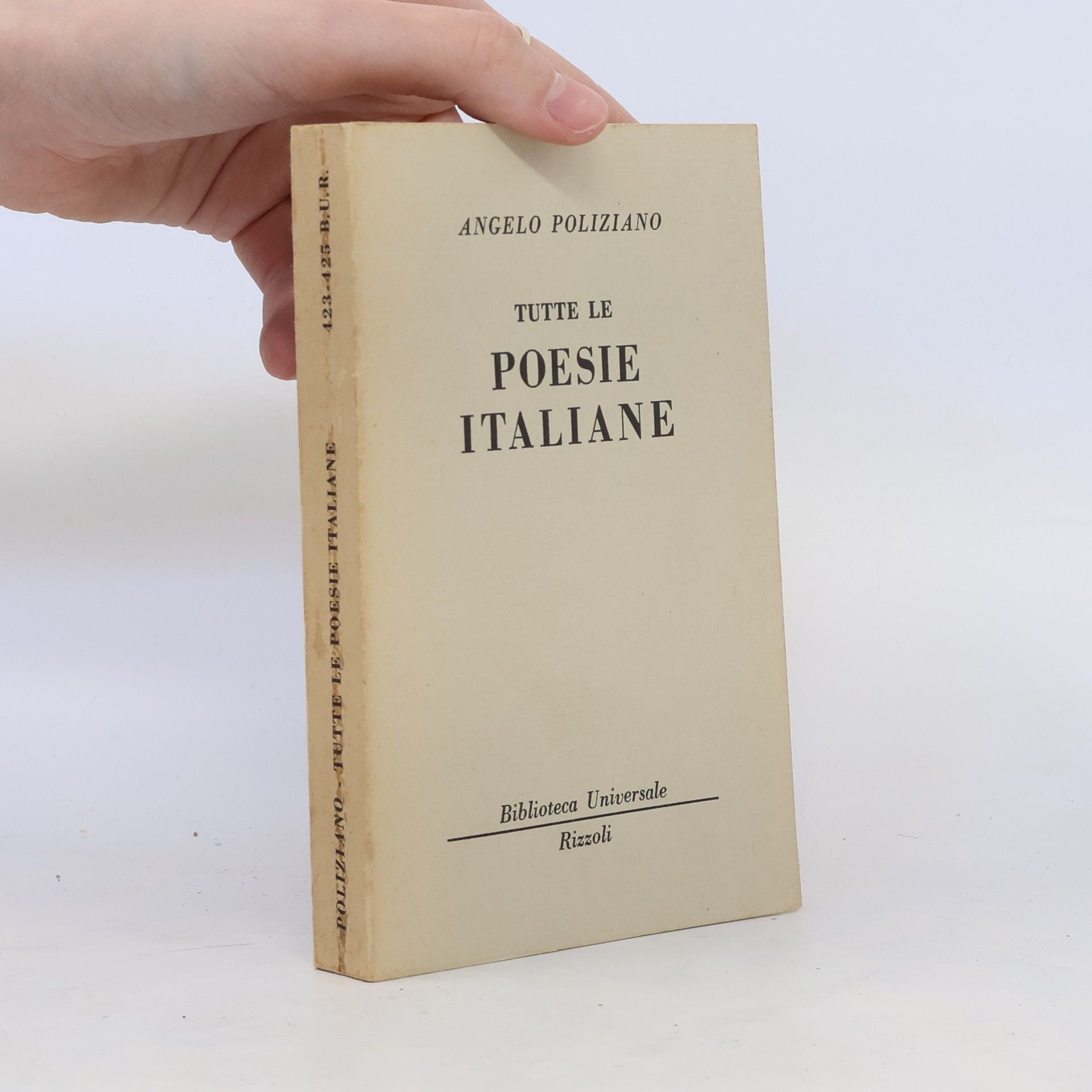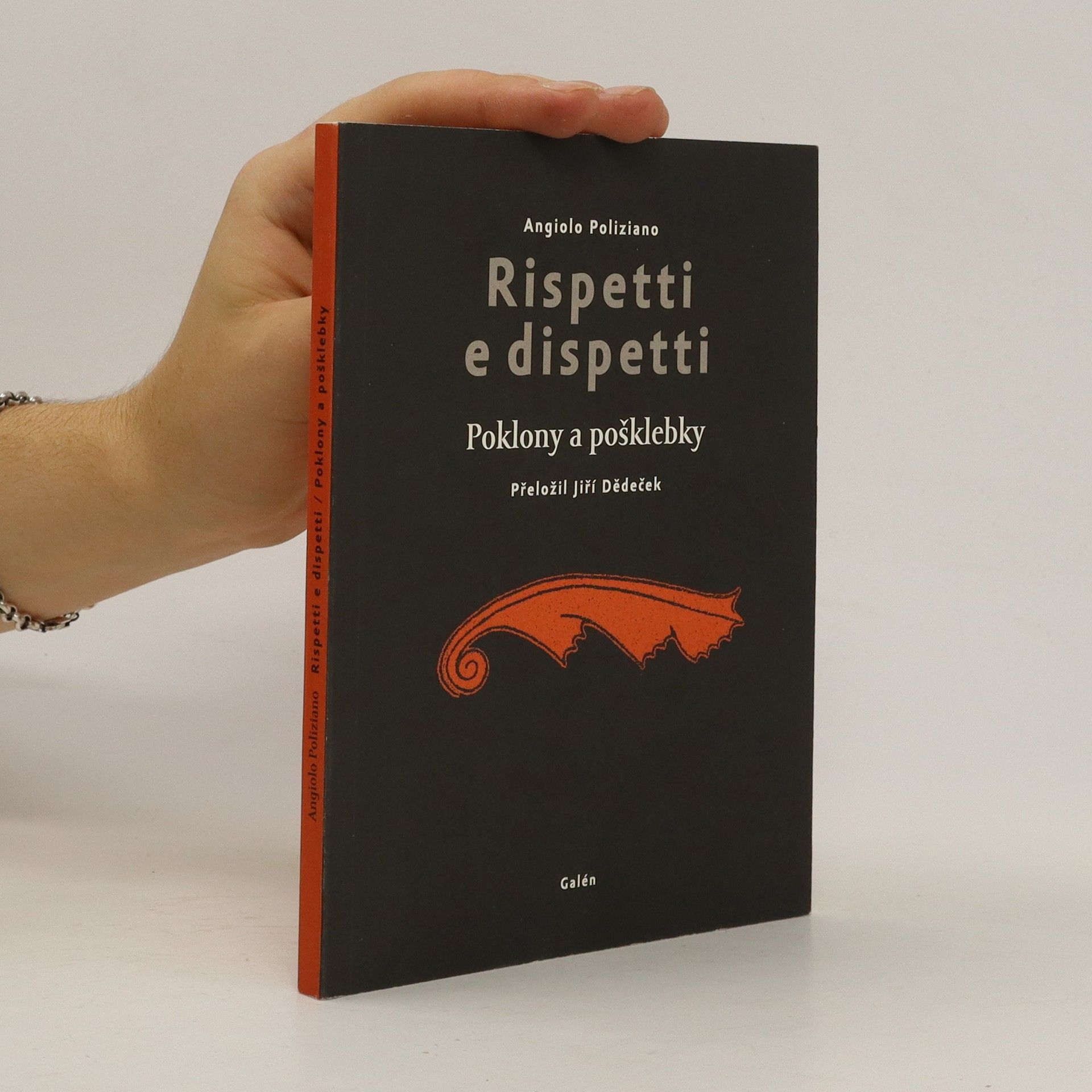Rispetti e dispetti
- 63 stránek
- 3 hodiny čtení
Z rozsáhlého díla italského básníka, překladatele, filologa a vychovatele, humanisty Angiola Poliziana (vl. jm. Angelo Ambrogini, 1454-1494) vybral písničkář, básník a prozaik Jiří Dědeček soubor jeho mistrných básnických miniatur, která kongeniálně přeložil do češtiny. Polizianova pravidelně rýmovaná milostná poezie souzní nejen s Dědečkovým básnickým naturelem, ale překvapivě i s duchem naší doby, vzdálené Polizianově Florencii půl tisíciletí. Verše lásky, něhy, vzteku i posměchu patří k vrcholům současného českého básnického překladu.




